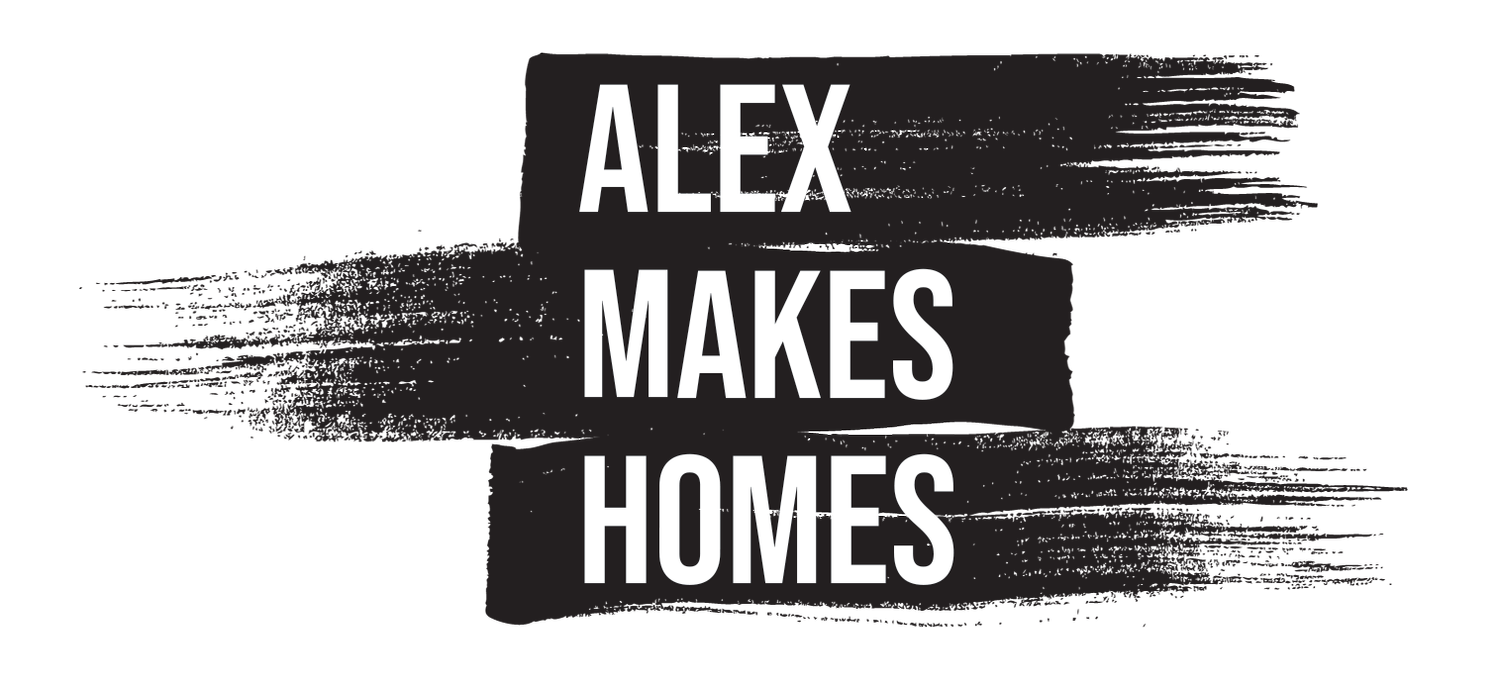The BEST Strategy to Begin Your Real Estate Journey
This one goes out to all of my first-time buyers looking at their preapproval mortgage quotes and thinking, “How on earth am I going to afford this monthly payment?!” I was in your shoes once, but I’m about to share a concept with you that helped me on my own homeownership journey. My hope is that it will help you too!
Our housing market is in the midst of an affordability crisis. I don’t feel the need to write about that topic though because it’s already been done for me by Pew Research Center, The New York Times, Economic Policy Institute, National Association of Home Builders, and a surprisingly good article by CNN.
Instead, I want to focus on what I think could be a solution: House-Hacking. House-hacking is a real estate investment technique that involves purchasing a property to live in yourself but also renting out a portion of it. The goal of house-hacking is to lower your own housing costs, but some folks even use it to generate income. It can take many different shapes, so let’s dive into the options!
Renting to a Roommate: This is likely the most common option, and most people doing it probably don’t even realize that the term “house-hacking” exists. If you have an extra bedroom, you might as well put it to good use!
Creating an “Income Suite”: This could be a basement, garage, or any other space that can be blocked off from the rest of your home with its own separate entrance. Visualize a studio apartment or an extended stay hotel room within your home.
Purchasing a Multifamily Property: If you buy a duplex, triplex, or quad, you could live in one unit and rent out the other units. Serious hackers will even combine this with option #1 by renting a bedroom within their own unit to a roommate.
Accessory Dwelling Units (ADU’s): By far my favorite of all the options, this would be a separate structure on your property that someone else can live in. Think tiny house, granny pod, carriage house, poolhouse, or even treehouse?!
If you’re ready to embark on a house-hacking journey, you’ll want to give careful consideration to the strategy that will work best for you. Here is my food for thought on each one!
Renting to a Roommate
There’s one major con that I know we’re all thinking about: roommates suck! Sometimes. You obviously need to be very careful if pursuing this option. My best advice is to be very, blatantly, up front and clear about expectations and timelines for everything. Don’t think because you’re only renting out a bedroom that you don’t need a formal written lease. YOU DO! Think through as many aspects of this living arrangement as you absolutely can and address every single one of them before letting anyone else move in:
How much are you going to play “landlord” versus “roommate”? Are you fixing every little problem? Changing every lightbulb and battery? Keep in mind, you’re likely the one on the hook for paying the plumber, HVAC tech, or electrician when needed!
Have a clear idea of how much you’re charging in rent and who pays what for which utilities. If you’re splitting your mortgage payment 50-50, you’re likely charging less than market value for rent; however, that may mean you have higher expectations of your roommate for helping you maintain the property. It might even be worth it to charge a little less in order to have an ideal roommate than to charge more and live with someone super high maintenance.
Lay some ground rules for the common areas. How many times have you gotten in a fight over dirty dishes? Someone leaving their clothes on the bathroom floor? The thermostat?!
Who is responsible for things like lawn care? Is that a shared expense or something you plan to do yourself? Maybe you plan to give your roommate a bit of a discount if they want to take on that task?
Make sure your schedules align. Night owls and early worms don’t usually make the best roommates, but they can with the right expectations set up in advance.
Above all, you want to make sure the person you’re living with is going to respect you and your home, especially if you’re a new homeowner! Adjusting to homeownership can come with a few headaches, and you don’t want your roommate to be one of them.
Income Suites
WHY DON’T MORE OF THESE EXIST?! “Income suites” really serve more than just the purpose of cutting housing costs. More commonly known as “in-law suites”, they also make the perfect solution for multigenerational housing. Unfortunately, they can be very hard to come by, so if you have the ability, I recommend creating your own! Here are some things to keep in mind when pursuing this option:
Consider your target tenant when designing your income suite. Long-term tenants will likely want a bit more space. If they’re staying for months or years at a time, they likely need a full kitchen and ideally, laundry access. However, if you plan to rent to weekend travelers on AirBnB, you can probably get away with nothing more than a mini fridge, a microwave, and a coffee maker.
If the space for your income suite doesn’t already have a bathroom, you’ll want to do your due diligence to make sure adding one is possible and within your budget. Homes on concrete slab or basements that don’t already have plumbing will be significantly more difficult to work with. However, if part of your income suite backs up to a wall with existing plumbing on the other side, or is directly above/below other plumbing, you may be able to tap into those pipes!
How is your tenant going to access their space? If the income suite doesn’t already have an exterior door, you may be able to convert a window into a door, but this is another project that will require some due diligence. I recommend having a contractor evaluate the possibility first.
The list of considerations goes on and on: parking, outdoor space, utilities, etc. However, the most important consideration for any of this will be how your changes affect resale value, in the event that you decide to move. Consult a real estate agent or an appraiser to find out!
While basements and garages obviously make great income suites, I personally think tri-levels are the most overlooked homes with the best potential!
Disclaimer: Be sure to consider zoning laws and permitting when making significant changes to your property. Multifamily
Evaluating a multifamily property requires far more analysis than your standard home. If you’re considering this route, I highly recommend you check out Bigger Pockets! The blog posts, podcasts, and forums are chock full of helpful information, but you can start with Multifamily Deal Analysis.
Since multifamily housing is typically more expensive, and you’re likely planning to use a loan program designed for a primary residence (for better interest rates and lower downpayments), your next step will be to consult your mortgage loan officer. Not every multifamily property will qualify for your loan type, and you’ll need a thorough breakdown of all of the numbers in order to complete your analysis. If you need recommendations for great local lenders, you can find them here.
Tip: Duplexes are typically the easiest multifamily options to come by in Central Virginia!
Accessory Dwelling Units
If I have one hope / prediction for the future of housing, it is that we will see a significant increase in the presence of ADU’s. It’s no secret that low inventory - specifically small, affordable inventory - is at the root of our housing affordability crisis (see articles mentioned at the beginning of this post). Land isn’t going to get any cheaper, and builders aren’t going to forfeit profit in order to fix this issue. Therefore, ADU’s seem like a logical solution.
The biggest obstacle for ADU’s is government regulation, but many densely populated areas, such as Los Angeles or Denver, are working to make them more accessible. The second biggest obstacle is likely cost, which is why I LOVE to see ideas like this one, which provide financing solutions as well as income tax credits for those willing to build and rent ADU’s to tenants that meet specific income and rent guidelines.
There’s also been a vast improvement in the design of ADU’s recently… perhaps, we have the tiny house movement to thank for that? Even Dwell Magazine has created its own ADU kit, which is clearly immaculate, but it comes at a price point that really only makes sense for those markets like L.A. and Denver. I’m also a big fan of the Avrame A-Frame Kit Homes and the Raynore Container Home right here in Henrico, VA!
Conclusion
Yes, house-hacking can come with some major sacrifices. It can be a lot of work or a bit less comfortable, depending on the route you choose. However, house-hacking can always be a temporary solution! Something as simple as a pay raise at work or the ability to refinance when the interest rates come back down could completely eliminate your need for one of these house-hacking solutions. Otherwise, in the meantime, you can continue to rent, paying your landlord’s mortgage, and watching those house prices continue to go up over time. Just sayin’. ;)
Sign up for "What Would Alex Buy" to get house-hacking properties sent to your inbox!
